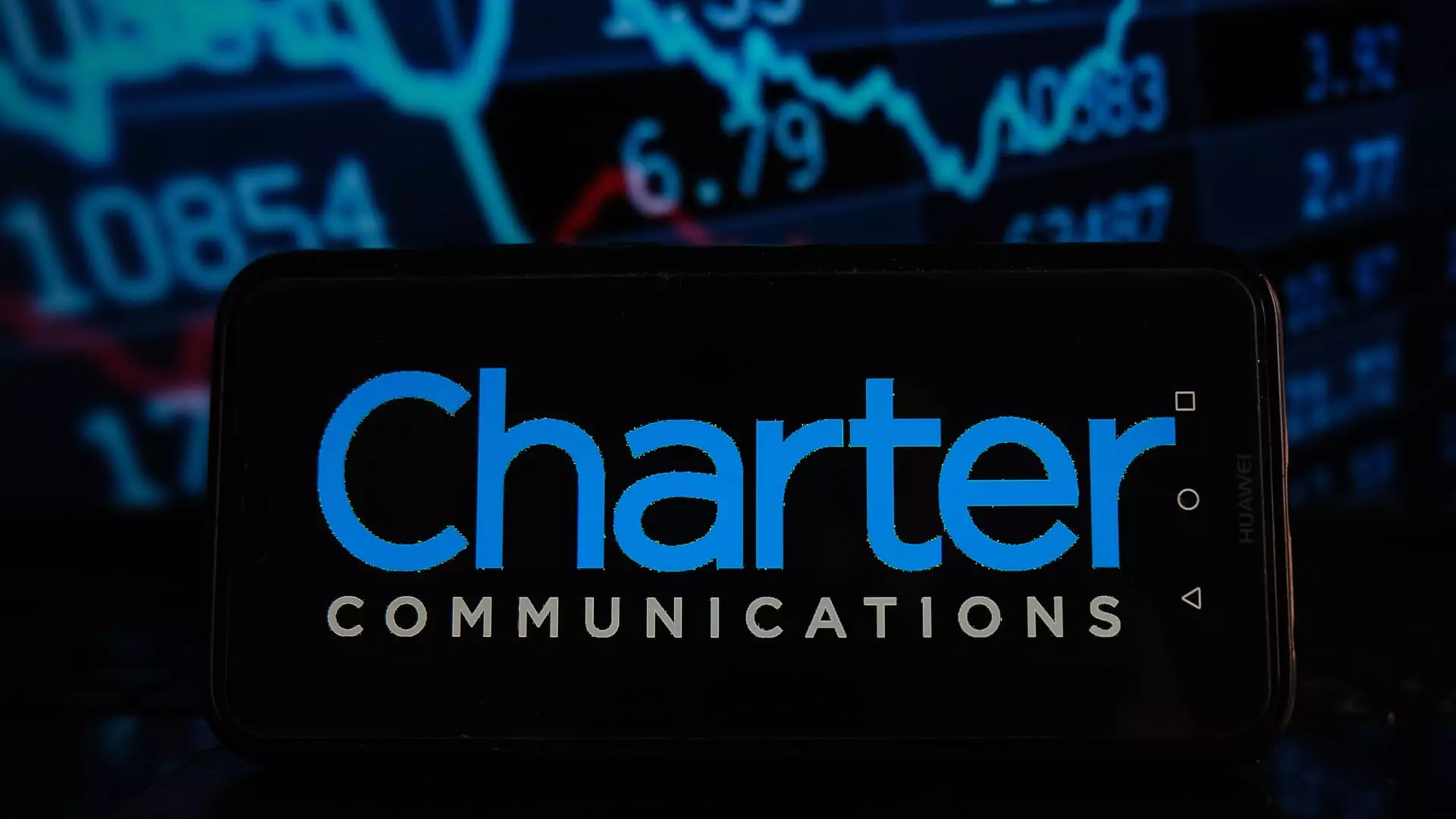In an era where traditional cable giants find themselves gasping for breath, one seismic shift is about to reshape the landscape: the merger between Charter Communications and Cox Communications. Valued at an astonishing $34.5 billion, this deal signifies more than just a corporate union; it’s a desperate bid for survival in an industry facing relentless challenges. As a center-left liberal, I can’t help but view this merger through a critical lens. There’s an eerie sense of inevitability as two behemoths of the cable industry consolidate their power amidst an environment defined by rapid technological advancement and evolving consumer preferences.
The valuation of Cox, with approximately $21.9 billion in equity and $12.6 billion in net debt, showcases how increasingly intertwined these two companies have become. Indeed, Charter’s sprawling enterprise—second only to Comcast—suggests a hunger for dominance that betrays the very heart of competitive consumer markets. There’s a fragile irony in how large corporations perceive mergers as solutions to declining numbers and market disinterest, rationalizing it under the banner of “synergies.” Yet, does this truly benefit consumers?
Market Monopoly: A Hidden Cost
At a time when 5G technology and enhanced wireless solutions loom large, the cable sector finds its customer base shrinking at an alarming rate. Charter’s loss of 60,000 broadband customers in the first quarter highlights a pervasive crisis; people are shedding their ties to cable. Customers are increasingly shifting to mobile and wireless offerings that provide freedom and flexibility. This merger unleashes a profound concern: will the combined entity prioritize profit over providing consumer-friendly services? The erosion of competition raises fundamental questions about quality, accessibility, and affordability that remain unanswered in the fog of corporate ambition.
It’s hard to overlook the implications for the everyday consumer. With Charter and Cox consolidating resources, one cannot help but envision a future where pricing structures become enigmatic and services stagnant. Mergers like these tend to favor shareholder interests over customer satisfaction, leading to homogenization in services. Monopoly-like dynamics stifle the innovation that once thrived in a competitive marketplace, reducing choices for consumers and leaving them at the mercies of corporate interests.
The Mobile Push: A Dual-Edged Sword
Both Charter and Cox are now venturing into mobile offerings amid dwindling traditional cable subscriptions. While Charter has aggressively built a mobile arm with 10.5 million lines, this strategy raises another layer of complexity. A mobile expansion might seem appealing, but it often necessitates tethering consumers to contracts that can feel oppressive and restrictive. The irony is thick: as broadband customers look for alternatives, traditional cable companies are boxing them into another confusing package of services. As a center-left liberal, I can’t help but feel skeptical about how much of this is genuine consumer-centric innovation versus merely repackaging of existing services for profit maximization.
Cox Enterprises, although retaining a considerable stake at roughly 23%, may well find its influence diluted in the things that matter most: customer care, pricing, and service quality. Will its family ethos, rooted in decades of service, survive the cold pragmatism of corporate boardrooms? The shift to a combined name under Cox Communications raises eyebrows and questions about the brand identity that was once rooted in the autonomy of both companies.
Leadership: The Same Old Faces in New Places
With Charter’s CEO Chris Winfrey continuing to lead as the merged company’s president and CEO, it raises concerns about continuity versus innovation. The ties to past leadership could hinder the new entity’s ability to adapt to a rapidly changing technological landscape. Alex Taylor of Cox Enterprises stepping in as chairman of the board suggests a shared ambition to navigate these waters together, but one must wonder if familial ties can foster the necessary disruption for genuine change.
As mergers create bigger corporations, the chances for cumbersome bureaucracies that stifle agility and responsiveness grow. The longing for a nimble, consumer-centric approach is drowned in the tide of corporate inertia that often defines mammoth organizations.
This merger underlines a critical juncture—while it may seem an expedient solution for two cable titans, the looming consequences raise the stakes for consumers who have long been caught between corporate ambitions and their own shifting needs. In a world increasingly driven by digital alternatives, one can only hope that the new entity, whatever it decides to call itself, doesn’t forget who its real customers are as it braces for the future.

